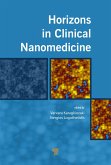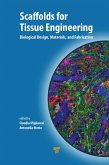The concept behind this book is to provide a detailed and practical overview of the development and use of immunoassays in many different areas. Immunoassays are analytical tests that utilise antibodies to measure the amount, activity or identity of an analyte. This book is designed to provide a critical and helpful insight into the subject and to give the user practical information that may be of assistance in assay format selection, antibody generation/selection and choice of appropriate detection strategies. It is comprised of 13 chapters written by highly experienced researchers in the fields of antibody-based research, immunoassay development, assay validation, diagnostics and microfluidics.
Beginning with a comprehensive survey of antibodies, immunoassay formats and signalling systems, the book elucidates key topics related to the development of an ideal antibody-based sensor, focuses on the important topic of surface modification, explores key parameters in the immobilisation of antibodies onto solid surfaces, discusses the move to 'lab-on-a-chip'-based devices and investigates the key parameters necessary for their development. Three of the chapters are dedicated to the areas of clinical diagnostics, infectious disease monitoring and food security, where immunoassay-based applications have become highly valuable tools. The future of immunoassays, including next-generation immunoassays, electrochemical-immunoassays and 'lab-on-a-chip'-based systems, is also discussed. The book also covers the use of optical detection systems (with a focus on surface plasmon resonance) in immunoassays, provides a compilation of important, routinely used immunoassay protocols and addresses problems that may be encountered during assay development.
Beginning with a comprehensive survey of antibodies, immunoassay formats and signalling systems, the book elucidates key topics related to the development of an ideal antibody-based sensor, focuses on the important topic of surface modification, explores key parameters in the immobilisation of antibodies onto solid surfaces, discusses the move to 'lab-on-a-chip'-based devices and investigates the key parameters necessary for their development. Three of the chapters are dedicated to the areas of clinical diagnostics, infectious disease monitoring and food security, where immunoassay-based applications have become highly valuable tools. The future of immunoassays, including next-generation immunoassays, electrochemical-immunoassays and 'lab-on-a-chip'-based systems, is also discussed. The book also covers the use of optical detection systems (with a focus on surface plasmon resonance) in immunoassays, provides a compilation of important, routinely used immunoassay protocols and addresses problems that may be encountered during assay development.
Dieser Download kann aus rechtlichen Gründen nur mit Rechnungsadresse in A, B, BG, CY, CZ, D, DK, EW, E, FIN, F, GR, HR, H, IRL, I, LT, L, LR, M, NL, PL, P, R, S, SLO, SK ausgeliefert werden.









